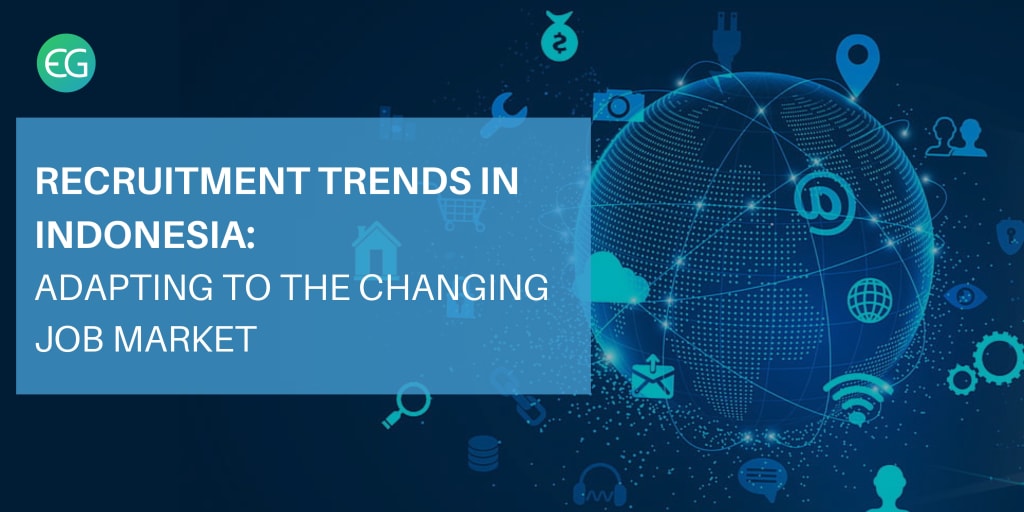Recruitment Trends in Indonesia
The job market in Indonesia is rapidly evolving, and staying abreast of the latest recruitment trends has never been more important. Read on to know more!

The job market in Indonesia is rapidly evolving, and staying abreast of the latest recruitment trends has never been more important. As we look ahead to 2023, several factors are likely to shape the recruitment landscape in Indonesia. One of the most significant changes has been the growing trend of remote work, driven by the COVID-19 pandemic. This shift has brought about a renewed focus on employee well-being and work-life balance, as companies work to create a supportive environment for their remote workers.
Alongside this, artificial intelligence (AI) is increasingly being used to streamline the recruitment process, with the potential to improve efficiency and accuracy. However, concerns about bias and discrimination in AI-powered recruitment have also been raised, and it is important for companies to take steps to mitigate these risks.
In this article, we will delve into these trends and explore their implications for the recruitment process in Indonesia. We will discuss how remote work is reshaping the way companies recruit and retain talent, the importance of employee well-being and work-life balance, and how companies can implement initiatives to improve the mental and emotional well-being of their employees. We will also examine the benefits and potential risks of using AI in recruitment processes and how companies can ensure that AI is used ethically and responsibly. Finally, we will explore the growing importance of diversity and inclusion in the recruitment process and how companies can create a more inclusive workplace that reflects the diversity of Indonesia’s population.
By understanding these trends and how they are shaping the recruitment process, job seekers and employers in Indonesia can stay ahead of the curve and better position themselves for success in the years to come.
1. Digital Skills in High Demand
With the increasing digitalization of businesses, there is a growing demand for workers with skills in digital marketing, data analysis, programming, and other tech-related fields. Companies are investing heavily in technology to improve their operations and stay ahead of the competition. Therefore, job seekers with digital skills are highly sought after by employers.
The rapid growth of e-commerce, digital marketing, and other online businesses has created a need for workers who can help companies to navigate the digital landscape. Skills such as data analysis, artificial intelligence, programming, and cybersecurity are in high demand, and job seekers who possess these skills are likely to be in high demand.
2. Emphasis on Remote Work
The COVID-19 pandemic has accelerated the trend of remote work as employers adopt flexible work arrangements and employees seek better work-life balance. Remote work offers several benefits for both employees and employers. For employees, it provides greater flexibility, better work-life balance, and reduced commuting time and costs. For employers, it can lead to increased productivity, reduced overhead costs, and access to a larger pool of talent.
With the growth of remote work, virtual hiring, and onboarding processes are also becoming more common, allowing employers to recruit and onboard talent from anywhere in the world, further expanding the talent pool.
3. Focus on employee well-being
Mental health and work-life balance have become increasingly important for employees in recent years. With the rise of remote work and the blurring of boundaries between work and personal life, it is crucial for employers to prioritize the mental and emotional well-being of their employees. Employees who feel supported and valued are more productive, engaged, and loyal to their companies.
Employers can implement various well-being initiatives to improve employee satisfaction, such as providing mental health resources, offering flexible work arrangements, and promoting a healthy work culture that encourages work-life balance. By investing in employee well-being, companies can attract and retain top talent, create a positive work environment, and ultimately drive business success.
4. Use of AI in Recruitment
The use of artificial intelligence (AI) in recruitment processes is on the rise, with many companies adopting AI-powered tools to streamline their hiring processes. Some of the benefits of using AI in recruitment include increased efficiency, improved candidate matching, and reduced human error.
AI can analyze large amounts of data and identify patterns to identify the best candidates for a particular job, reducing the time and effort required for recruiters to sift through resumes and applications.
However, there are also concerns about potential bias and discrimination in AI-powered recruitment. AI systems may inadvertently perpetuate biases in the hiring process, such as gender, race, or socioeconomic status, based on the data they are trained on.





Comments
There are no comments for this story
Be the first to respond and start the conversation.